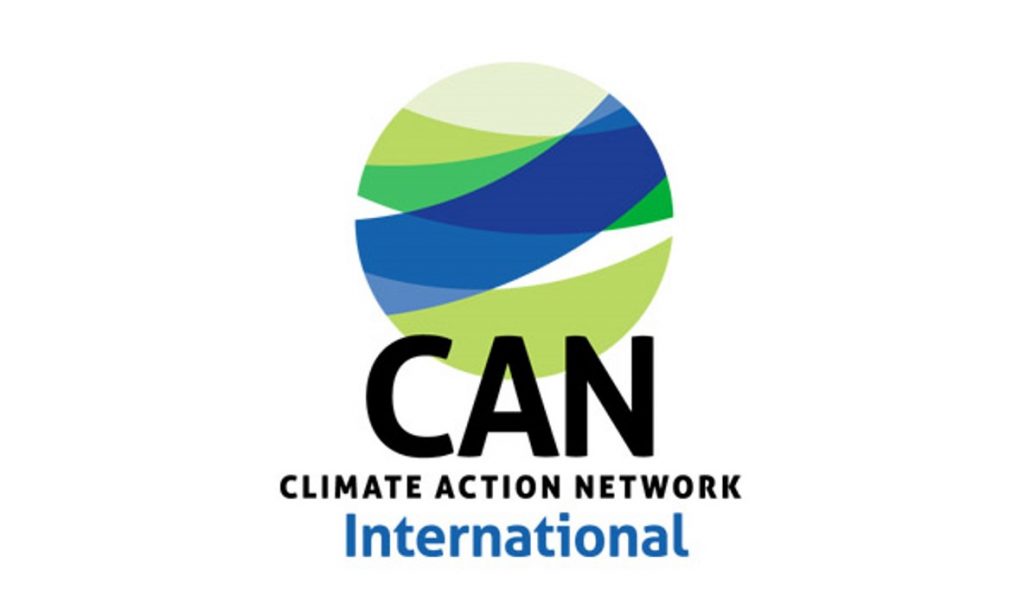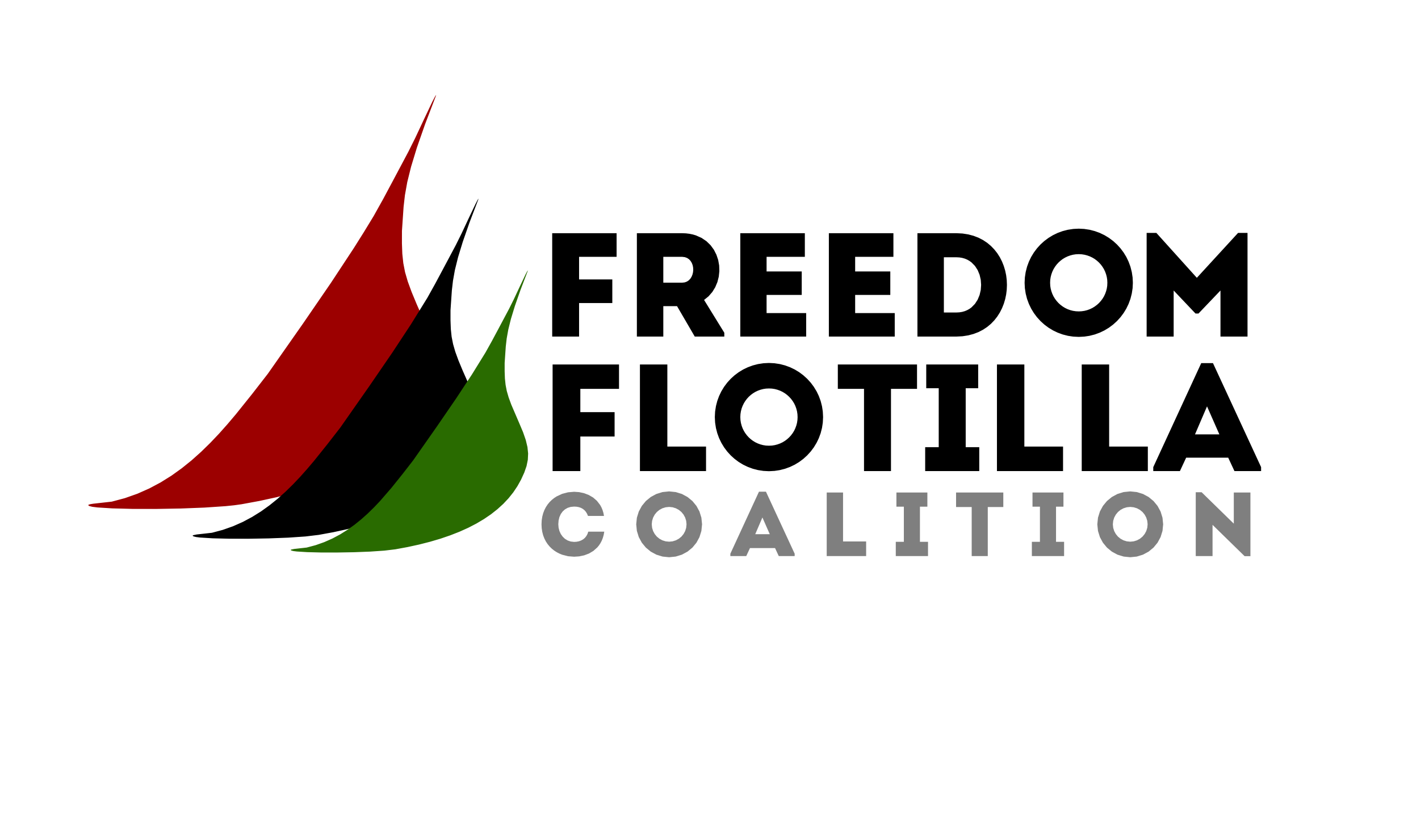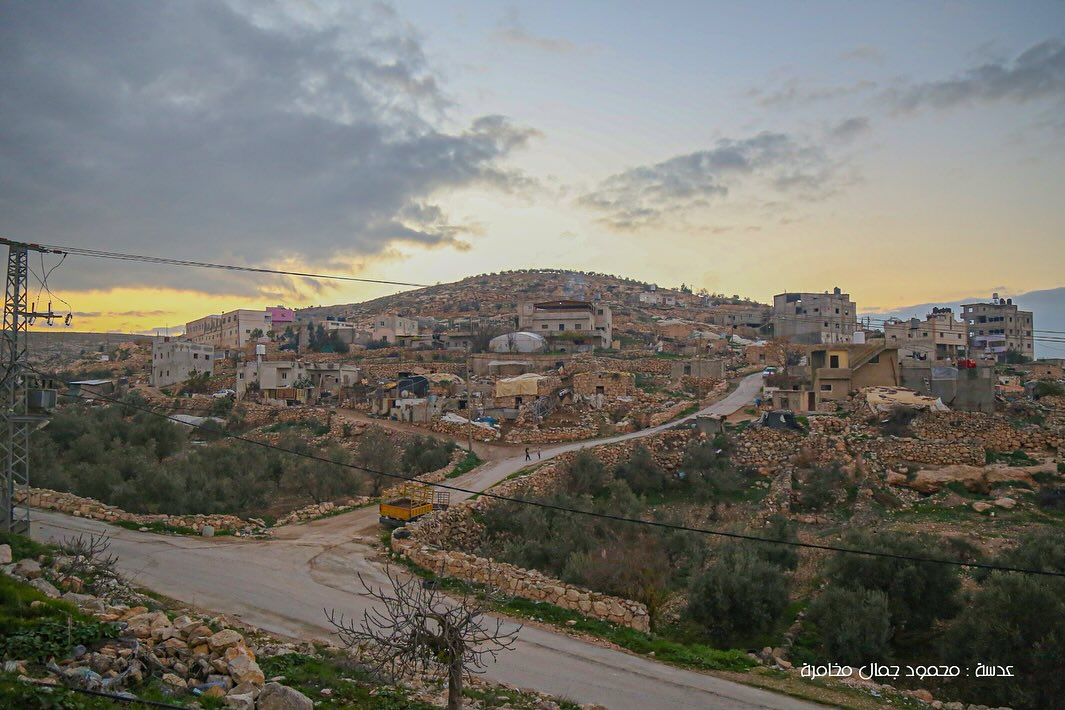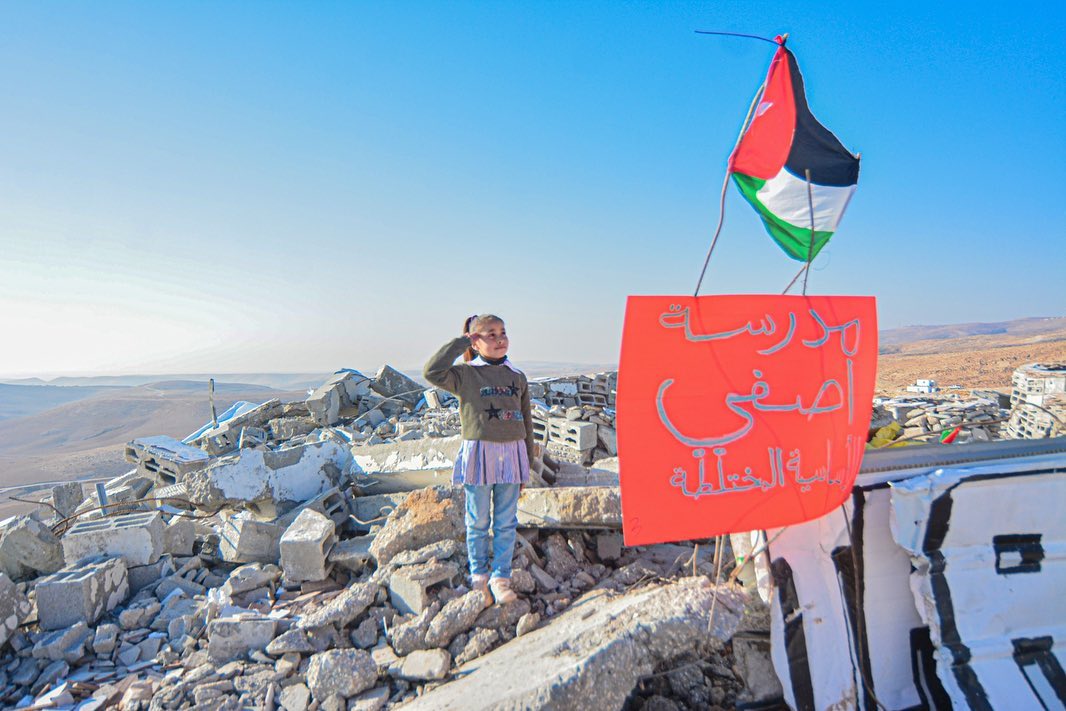(1) Mohammed El-Kurd, Perfect Victims: And the Politics of Appeal (Haymarket Books, 2025)
(2) Conflict and Environment Observatory, ‘New Estimate: Global Military Is Responsible for More Emissions than Russia’, CEOBS, 10 November 2022, https://ceobs.org/new-estimate-global-military-is-responsible-for-more-emissions-than-russia/.
(3) IPCC, 2023: Climate Change 2023: Synthesis Report. Contribution of Working Groups I, II and III to the Sixth Assessment Report of the Intergovernmental Panel on Climate Change [Core Writing Team, H. Lee and J. Romero (eds.)]. IPCC, Geneva, Switzerland, pp. 35-115, doi:
10.59327/IPCC/AR6-9789291691647.
(4) The epistemic appropriation of resistance happens when the foundational ideas and beliefs of resistance are appropriated by other communities in ways that obscure and distort the very essence of resistance by failing to acknowledge the true origins, context, and community that is resisting.
(5) T.J. Demos, Gaza Genocide, Climate Colonialism, and Survival Media: What It Would Mean to Repair Loss and Damage, 20 January 2025, https://www.waysofrepair.com/texts-of-repair-1/gaza-genocide-climate-colonialism-and-survival-media-what-it-would-mean-to-repair-loss-and-damage
(6) Jason W. Moore, Capitalism in the Web of Life: Ecology and the Accumulation of Capital (Verso Books, 2015)
(7) We take the Global North as nations or institutions who are positioned historically (and many contemporarily) as colonial powers, are dominant in global economic structures, and politically oriented towards preserving and benefitting from existing hierarchies of global domination. Those in the Global South are often the historically (and contemporarily) colonised and exploited countries. A recent development has pushed to recognise the Global South as the Global Majority (and Global North as Global Minority) so as to highlight that African, Asian, Latin American, Indigenous, and mixed-heritage people make up the majority of the global population, while also challenging the power-laden separation between ‘developed’ and ‘undeveloped’ countries
(8) Ståle Holgersen, Against the Crisis: Economy and Ecology in a Burning World (Verso Books, 2024)
(9) Kenneth Pomeranz, The Great Divergence: Europe, China, and the Making of the Modern World Economy, Princeton Economic History of the Western World (Princeton University Press, 2000)
(10) ‘Nearly Half the World Lives on Less than $5.50 a Day’, World Bank, accessed 1 August 2025, https://www.worldbank.org/en/news/press-release/2018/10/17/nearly-half-the-world-lives-on-less-than-55 0-a-day
(11) Andreas Malm, White Skin, Black Fuel: On the Danger of Fossil Fascism, with Zetkin Collective (Verso, 2021)
(12) Truly Santika et al., ‘Trade Agreements and Environmental Provisions: A Counterfactual Analysis of Environmental Impact Shifting under Global Economic Inequality’, Global Environmental Change 93 (September 2025): 103028, https://doi.org/10.1016/j.gloenvcha.2025.103028
(13) Sovereign debt today has its roots in colonial history. Still today debt is used as a tool of imperial domination, where economic elites in the Global North lock-in Global South entities into a cycle of dependence and economic confinement. For more see:Pierre Pénet and Juan Flores Zendejas, eds, Sovereign Debt Diplomacies: Rethinking Sovereign Debt from Colonial Empires to Hegemony, First edition, Oxford Scholarship Online Economics and Finance (Oxford University Press, 2021), https://doi.org/10.1093/oso/9780198866350.001.0001.https://doi.org/10.1093/oso/9780198866350.001.0001
(14) Hickel, Jason. The Divide: A Brief Guide to Global Inequality and Its Solutions. Penguin Books/Windmill Books, 2018
(15) Centre Delàs d’Estudis per la Pau, ‘La Banca Armada y su corresponsabilidad en el genocidio en Gaza: La financiación de las empresas que fabrican las armas usadas en las masacres contra la población palestina’, Mientras Tanto, Mientras tanto, no. 239 (2025): 19, https://dialnet.unirioja.es/servlet/articulo?codigo=9782259; Centre Delàs d’Estudis per la Pau, ‘La Banca Armada y su corresponsabilidad en el genocidio en Gaza’; Nielson and Derbas, ‘Ensuring Genocide: The Insurance Industry and Israel’s War Machine’.https://www.palestine-studies.org/en/node/1657136
(16) ‘Timeline: The Humanitarian Impact of the Gaza Blockade’, Oxfam International, 25 May 2022, https://www.oxfam.org/en/timeline-humanitarian-impact-gaza-blockade.https://www.oxfam.org/en/timeline-humanitarian-impact-gaza-blockade
(17) ‘Gaza Economy on the Verge of Collapse, Youth Unemployment Highest in the Region at 60 Percent’, World Bank, accessed 31 July 2025, https://www.worldbank.org/en/news/press-release/2015/05/21/gaza-economy-on-the-verge-of-collapse
(18) UNRWA, UNRWA Situation Report #43 on the Situation in the Gaza Strip and the West Bank, Including East Jerusalem, Situation Report (2023),https://www.unrwa.org/resources/reports/unrwa-situation-report-43-situation-gaza-strip-and-west-bank-including-east-Jerusalem
(19) UN Country Team in the occupied Palestinian territory. ‘Gaza in 2020: A liveable place? – Report by the UN Country Team in the OPT’. https://www.un.org/unispal/document/auto-insert-195081/
(20) ‘As War in Gaza Enters Seventh Month, 1.74 Million More Palestinians Will Be Pushed into Poverty across State of Palestine According to United Nations Assessment’, UNDP, accessed 2 August 2025, https://www.undp.org/papp/press-releases/war-gaza-enters-seventh-month-174-million-more-palestinians-will-be-pushed-poverty-across-state-palestine-according-united
(21) International Court of Justice. ‘Legal Consequences of the Construction of a Wall in the Occupied Palestinian Territory. Advisory opinion.’ https://www.icj-cij.org/case/131
(22) Since Israel’s occupation of the West Bank in 1967, dozens of UN resolutions and ICJ rulings have confirmed the illegality of these settlements under international law. See UN Committee on the Exercise of the Inalienable Rights of the Palestinian People, ‘Study on the Legality of the Israeli Occupation of the Occupied Palestinian Territory, Including East Jerusalem’ (2023). https://www.un.org/unispal/document/ceirpp-legal-study2023/
(23) ‘Israel GDP and Economic Data’, Global Finance Magazine, n.d., accessed 31 July 2025, https://gfmag.com/country/israel-gdp-country-report/
(24) ‘Legal Definition of Ecocide Drafted by Independent Expert Panel’, Stop Ecocide International, accessed 4 August 2025, https://www.stopecocide.earth/legal-definition.https://www.stopecocide.earth/legal-definition
(25) Tim Lindgren (2018) Ecocide, genocide and the disregard of alternative life-systems, The International Journal of Human Rights, 22:4, 525-549, DOI: 10.1080/13642987.2017.1397631
(26) Benjamin Neimark et al., ‘War on the Climate: A Multitemporal Study of Greenhouse Gas Emissions of the Israel-Gaza Conflict’, SSRN Scholarly Paper no. 5274707 (Social Science Research Network, 1 April 2025), https://doi.org/10.2139/ssrn.5274707.https://doi.org/10.2139/ssrn.5274707
(27) Fred Pearce, ‘As War Halts, the Environmental Devastation in Gaza Runs Deep’, Yale E360, 6 February 2025, https://e360.yale.edu/features/gaza-war-environment
(28) UN OCHA Humanitarian Situation Update #185 – Gaza Strip. https://www.un.org/unispal/document/situation-update-185-ocha-010724/
(29) Nils Adler, ‘“Death Sentence”: Asbestos Released by Israel’s Bombs Will Kill for Decades’, Al Jazeera, 8 October 2024, https://www.aljazeera.com/news/2024/10/8/death-sentence-asbestos-released-by-israels-bombs-will-kill-generations
(30) Kevin Maimann, ‘The Israel-Hamas War Has Wiped out Most of Gaza's Farm Land. The Environmental Costs Are Adding Up’, CBC News, 16 October 2024, https://www.cbc.ca/news/world/israel-hamas-war-climate-1.7352749
(31) Madhat Farouk Abu-alnaeem et al., ‘Assessment of Groundwater Salinity and Quality in Gaza Coastal Aquifer, Gaza Strip, Palestine: An Integrated Statistical, Geostatistical and Hydrogeochemical Approaches Study’, Science of The Total Environment 615 (February 2018): 972–89, https://doi.org/10.1016/j.scitotenv.2017.09.320
(32) Pinar Dinc and Necmettin Türk, ‘Roots of Destruction: Exploring the Genocide-Ecocide Nexus through the Destruction of Olive Trees in Occupied Palestine and Rojava’, The International Journal of Human Rights, 6 August 2025, 1–25, https://doi.org/10.1080/13642987.2025.2541756
(33) Jamal Nabulsi, ‘“To Stop the Earthquake”: Palestine and the Settler Colonial Logic of Fragmentation’, Antipode 56, no. 1 (2024): 187–205, https://doi.org/10.1111/anti.12980.https://doi.org/10.1111/anti.12980
(34) Ecocide: Israel’s Deliberate and Systematic Environmental Destruction in Gaza (Al Mezan Center for Human Rights, 2024), https://mezan.org/en/post/46553
(35) Lewis Raven Wallace, ‘In Palestine and Beyond, Tear Gas Takes Environmental Toll’, Truthout, 28 May 2019, https://truthout.org/articles/in-palestine-and-beyond-tear-gas-takes-environmental-toll/.https://truthout.org/articles/in-palestine-and-beyond-tear-gas-takes-environmental-toll/
(36) ‘Photos: Israel’s Scorched Earth Campaign Leaves Gaza in Ruins’, Al Jazeera, accessed 4 August 2025, https://www.aljazeera.com/gallery/2025/1/22/israels-scorched-earth-campaign-leaves-gaza-in-ruins.https://www.aljazeera.com/gallery/2025/1/22/israels-scorched-earth-campaign-leaves-gaza-in-ruins
(37) Forensic Architecture. ‘’No traces of life’: Israel’s ecocide in Gaza 2023-2024’ (2024)
https://forensic-architecture.org/investigation/ecocide-in-gaza
(38) Hamza Hamouchene and Katie Sandwell, eds, Dismantling Green Colonialism: Energy and Climate Justice in the Arab Region (Pluto Press, 2023)
(39) Simon I. Awad, ‘Ecological Justice for Palestine’, in Environmental Justice, Popular Struggle and Community Development, ed. Anne Harley and Eurig Scandrett, Rethinking Community Development (Bristol University Press, 2019), Cambridge Core, https://doi.org/10.46692/9781447350842.010
(40) Muna Dajani (2017) ‘The “Apolitical” Approach to Palestine’s Water Crisis’. Policy Brief, Al-Shabaka: The Palestinian Policy Network. https://al-shabaka.org/briefs/the-apolitical-approach-to-palestines-water-crisis/
(41) El Houri, Walid. ‘Israel destroys Palestine’s last surviving seed bank, echoing a colonial legacy of erasure’ (2025). https://globalvoices.org/2025/08/07/israel-destroys-palestines-last-surviving-seed-bank-echoing-a-colonial-legacy-of-erasure/
(42) Sasa, Ghada. ‘Oppressive Pines: Uprooting Israeli Green Colonialism and Implanting Palestinian A’wna’. Politics 43, no. 2 (2023): 219–35. https://doi.org/10.1177/02633957221122366
(43) Al Jazeera. ‘What’s the connection between Israeli wildfires and ‘green colonialism’?’ https://www.aljazeera.com/video/newsfeed/2025/5/4/whats-the-connection-between-israeli-wildfires-and-green-colonialism
(44) https://www.un.org/unispal/document/auto-insert-193492/
(45) Prof Hatem Bazian, ‘Zionist Myth #2- “Made the Desert Bloom”’, PalestineTribune, 16 April 2022, https://medium.com/palestinetribune/zionist-myth-2-made-the-desert-bloom-ed6f3d836b34
(46) Decolonize Palestine. ‘Myth: Israel made the desert bloom’. https://decolonizepalestine.com/myth/israel-made-the-desert-bloom/
(47) Estes, Nick, and Jaskiran Dhillon, eds. Standing with Standing Rock: Voices from the #NoDAPL Movement. University of Minnesota Press, 2019. https://doi.org/10.5749/j.ctvr695pq
(48) Dawson, Annabelle, and Riofrancos, Thea. ‘Where We Mine: Resource Politics in Latin America’, 2021.https://www.greeneuropeanjournal.eu/where-we-mine-resource-politics-in-latin-america/
(49) Patrick Wolfe, ‘Settler Colonialism and the Elimination of the Native’, Journal of Genocide Research 8, no. 4 (2006): 387–409, https://doi.org/10.1080/14623520601056240
(50) See new EU investment into South African critical raw mineral processing: ‘EU Targets Africa’s Mineral Wealth and Green Energy in New Partnership | Euronews’, accessed 3 August 2025, https://www.euronews.com/my-europe/2025/03/13/eu-targets-africas-mineral-wealth-and-green-energy-in-new-partnership.https://www.euronews.com/my-europe/2025/03/13/eu-targets-africas-mineral-wealth-and-green-energy-in-new-partnership
(51) Watson School of International and Public Affairs ‘Costs of War’. https://watson.brown.edu/costsofwar/costs/environmental
(52) Wenjie Dong et al., ‘Rising Military Spending Jeopardizes Climate Targets’, Nature Communications 16, no. 1 (2025): 4766, https://doi.org/10.1038/s41467-025-59877-x
(53) The Balfour Declaration made it explicit that a Zionist state was needed for geopolitical security, as articulated by Ronald Storrs, a governor of Jerusalem, who argued for creating a “loyal Jewish Ulster in a sea of potentially hostile Arabism”. https://www.middleeasteye.net/news/balfour-declaration-dissected-67-words-changed-world
(54) Former US Secretary of State Alexander Haig framed Israel as the “largest American aircraft carrier in the world that cannot be sunk” and former US President Joe Biden said in 1986 that “If there were not an Israel, we’d have to invent one.”
(55) ‘Israel/OPT: Over 800 European Financial Institutions Have Financial Relationships with 58 Companies Actively Involved in the Illegal Israeli Settlements, Report Finds’, Business & Human Rights Resource Centre, accessed 3 August 2025, https://www.business-humanrights.org/en/latest-news/israelopt-over-800-european-financial-institutions-had-financial-relationships-with-58-companies-actively-involved-in-the-illegal-israeli-settlements-report-finds/.https://www.business-humanrights.org/en/latest-news/israelopt-over-800-european-financial-institutions-had-financial-relationships-with-58-companies-actively-involved-in-the-illegal-israeli-settlements-report-finds/
(56) Antony Loewenstein, The Palestine Laboratory: How Israel Exports the Technology of Occupation around the World (Verso Books, 2024)
(57) Francesca Albanese, ‘A/HRC/59/23: From Economy of Occupation to Economy of Genocide - Report of the Special Rapporteur on the Situation of Human Rights in the Palestinian Territories Occupied since 1967 (Advance Edited Version)’, OHCHR, accessed 3 August 2025, https://www.ohchr.org/en/documents/country-reports/ahrc5923-economy-occupation-economy-genocide-report-special-rapporteur
(58) UNDP Programme of Assistance to the Palestinian People, ‘Climate Change Adaptation Strategy and Programme of Action for the Palestinian Authority’, 2010, https://www.undp.org/papp/publications/palestinian-climate-change-adaptation-strategy.UNDP
(59) Manal Shqair, ‘Arab–Israeli Eco-Normalisation: Greenwashing Settler Colonialism in Palestine and the Jawlan’, 10 July 2025, https://www.tni.org/en/article/arab-israeli-eco-normalisation
(60) Neimark et al., ‘War on the Climate’
(61) Al-Haq, ‘Israeli Gas Exploration Licenses in Palestine’s Maritime Areas Are Illegal and Violate International Law’, Al-Haq | Defending Human Rights in Palestine since 1979, 8 February 2024, https://www.alhaq.org/advocacy/22619.html
(62) Neimark et al., ‘War on the Climate’
(63) ‘The SIPRI Top 100 Arms-Producing and Military Services Companies in the World, 2023 | SIPRI’, accessed 3 August 2025, https://www.sipri.org/visualizations/2024/sipri-top-100-arms-producing-and-military-services-companies-world-2023
(64) ‘World’s Top Arms Producers See Revenues Rise on the Back of Wars and Regional Tensions | SIPRI’, 2 December 2024, https://www.sipri.org/media/press-release/2024/worlds-top-arms-producers-see-revenues-rise-back-wars-and-regional-tensions
(65) ‘SIPRI Yearbook 2025 | SIPRI’, accessed 3 August 2025, https://www.sipri.org/yearbook/2025. https://www.sipri.org/yearbook/2025
(66) ‘Global Landscape of Climate Finance 2025’, CPI, n.d., accessed 3 August 2025, https://www.climatepolicyinitiative.org/publication/global-landscape-of-climate-finance-2025/
(67) Nick J. Fox, ‘Green Capitalism, Climate Change and the Technological Fix: A More-than-Human Assessment’, The Sociological Review 71, no. 5 (2023): 1115–34, https://doi.org/10.1177/00380261221121232
(68) ‘U.S. Carbon Capture Project Map’, Clean Air Task Force, n.d., accessed 2 August 2025, https://www.catf.us/ccsmapus/
(69) Mohammed Usrof al et, ‘Ban Solar Geoengineering’, Project Syndicate, 31 December 2024, https://www.project-syndicate.org/commentary/young-activists-call-for-total-ban-on-solar-geoengineering-by-mohammed-usrof-et-al-2024-12.https://www.project-syndicate.org/commentary/young-activists-call-for-total-ban-on-solar-geoengineering-by-mohammed-usrof-et-al-2024-12
(70) Jean-Baptiste Fressoz, ‘In Tech We Trust: A History of Technophilia in the Intergovernmental Panel on Climate Change’s (IPCC) Climate Mitigation Expertise’, Energy Research & Social Science 127 (September 2025): 104280, https://doi.org/10.1016/j.erss.2025.104280
(71) Marcos, Henrique. ‘Tech Won’t Save Us: Climate Crisis, Techno-Optimism, and International Law’. Law, Technology and Humans, ahead of print, 24 March 2025. https://doi.org/10.5204/lthj.3816
(72) Hamouchene, Hamza. Dismantling Green Colonialism: Energy and Climate Justice in the Arab Region. Pluto Press, 2023
(73) Albanese, ‘A/HRC/59/23’
(74) Bendangwapang Ao and Sumedha Chatterjee, ‘Greenwashing and the Media: A Case of Israel’, in Environmental Activism and Global Media, ed. Pardeep Singh et al., Springer Studies in Media and Political Communication (Springer Nature Switzerland, 2024), https://doi.org/10.1007/978-3-031-55408-7_12
(75) Amber Rahman, ‘Explainer: The Role of AI in Israel’s Genocidal Campaign Against Palestinians’, Institute for Palestine Studies, accessed 3 August 2025, https://www.palestine-studies.org/en/node/1656285
See also: ‘“AI-Assisted Genocide”: Israel Reportedly Used Database for Gaza Kill Lists | Israel-Palestine Conflict News | Al Jazeera’, accessed 3 August 2025, https://www.aljazeera.com/news/2024/4/4/ai-assisted-genocide-israel-reportedly-used-database-for-gaza-kill-lists
(76) Loewenstein, The Palestine Laboratory
(77) U. N. Environment, ‘Artificial Intelligence (AI) End-to-End: The Environmental Impact of the Full AI Lifecycle Needs to Be Comprehensively Assessed | UNEP - UN Environment Programme’, 7 August 2024, https://www.unep.org/resources/report/artificial-intelligence-ai-end-end-environmental-impact-full-ai-lifecycle-needs-be
(78) David Kendell, ‘Age of Surveillance Capitalism–The Fight for a Human Future at the New Frontier of Power.’, Brock Education Journal 29, no. 2 (2020): 52–52, https://journals.library.brocku.ca/brocked/index.php/home/article/view/849
(79) Al Jazeera, ‘UN report lists companies complicit in Israel’s ‘genocide’: Who are they?’ https://www.aljazeera.com/news/2025/7/1/un-report-lists-companies-complicit-in-israels-genocide-who-are-they
(80) Uri Blau, ‘The Secretly Established Mechanism for Funding and Operating the Humanitarian Program in Gaza’, 11 May 2025, https://www.shomrim.news/eng/humanitarian-program-in-gaza; Alex de Waal, ‘Starvation in Gaza’, LRB Blog, 14 May 2025, https://www.lrb.co.uk/blog/2025/may/starvation-in-gaza
(81) To better understand the scope and scale of expansion of geoengineering worldwide, ETC Group and the Heinrich Boell Foundation has put together this interactive world map on geoengineering: https://map.geoengineeringmonitor.org/
(82) Israeli startup Gigablue is conducting Ocean Fertilisation experiment off the coast of New Zealand, an experimentation which is prohibited under the Convention of Biological Diversity and the London Convention: https://apnews.com/article/climate-global-warming-greenhouse-gases-oceans-carbon-06be29dd4dd2e8d3c0f92ac20e9ea193
(83) Ramin Skibba, ‘How One Company Wants to Make Geoengineering Profitable’, Undark Magazine, 17 March 2025, https://undark.org/2025/03/17/stardust-geoengineering-profitable/
(84) Abdo, Nahla. ‘Imperialism, the State, and Ngos: Middle Eastern Contexts and Contestations’. Comparative Studies of South Asia, Africa and the Middle East 30, no. 2 (2010): 238–49. https://doi.org/10.1215/1089201X-2010-010
(85) UN OHCHR. ‘UN experts call for immediate dismantling of Gaza Humanitarian Foundation’. 5 August, 2025. https://www.ohchr.org/en/press-releases/2025/08/un-experts-call-immediate-dismantling-gaza-humanitarian-foundation
(86) THIS IS NOT AID. THIS IS ORCHESTRATED KILLING MSF’s Frontline Medical Testimony on Systematic Mass Casualties from GHF Sites in Gaza (MSF (Médecins Sans Frontières), 2025), https://www.msf.org/not-aid-orchestrated-killing
(87) Norwegian Refugee Council. ‘Israel’s New INGO Registration Measures Are a Grave Threat to Humanitarian Operations and International Law – 55 Organisations Say’ (2025). https://www.nrc.no/news/2025/may/Israels-new-ingo-registration-measures-are-a-grave-threat-to-humanitarian-operations-and-international-law--55-organisations-say
(88) Olivier Nay, ‘International Organisations and the Production of Hegemonic Knowledge: How the World Bank and the OECD Helped Invent the Fragile State Concept’, in The Political Invention of Fragile States (Routledge, 2016), https://www.taylorfrancis.com/chapters/edit/10.4324/9781315754888-3/international-organisations-production-hegemonic-knowledge-world-bank-oecd-helped-invent-fragile-state-concept-olivier-nay
(89) Nur Arafeh and Mandy Turner, Destruction, Disempowerment, and Dispossession: Disaster Capitalism and the Postwar Plans for Gaza, Article (Malcolm H. Kerr Carnegie Middle East Center, 2025), https://carnegieendowment.org/research/2025/07/destruction-disempowerment-and-dispossession-disaster-capitalism-and-the-postwar-plans-for-gaza?lang=en¢er=middle-east
(90) PACBI, ‘Standing Together: Serving Apartheid Israel’s Propaganda | BDS Movement’, 24 January 2024, https://bdsmovement.net/standing-together-normalization
(91) United Nations, ‘Report of the UN Secretary-General - Advisory Opinion of the International Court of Justice on the Legal Consequences Arising from the Policies and Practices of Israel in the Occupied Palestinian Territory, Including East Jerusalem, and from the Illegality of the Continued Presence of Israel in the Occupied Palestinian Territory’, Question of Palestine, n.d., accessed 3 August 2025, https://www.un.org/unispal/document/report-of-the-secretary-general-icj-19dec24/
(92) United Nations, ‘Summary of ICJ’s Order of 24 May 2024 - Request for the Modification of the Order of 28 March 2024 - Application of the Convention on the Prevention and Punishment of the Crime of Genocide in the Gaza Strip (South Africa v. Israel)’, Question of Palestine, n.d., accessed 3 August 2025, https://www.un.org/unispal/document/summary-of-icjs-order-24may24/
(93) Karim Khan, ‘Statement of ICC Prosecutor Karim A.A. Khan KC: Applications for Arrest Warrants in the Situation in the State of Palestine | International Criminal Court’, 20 May 2024, https://www.icc-cpi.int/news/statement-icc-prosecutor-karim-aa-khan-kc-applications-arrest-warrants-situation-state
(94) Noura Erakat, Justice for Some: Law and the Question of Palestine (Stanford University Press, 2019)
(95) Erakat, Justice for Some
(96) Obligations of States in Respect of Climate Change (Request for Advisory Opinion) (International Court of Justice 23 July 2025), https://www.icj-cij.org/case/187
(97) ‘World Court Says Countries Are Legally Obligated to Curb Emissions, Protect Climate’, Climate and Environment, UN News, 23 July 2025, https://news.un.org/en/story/2025/07/1165475.https://news.un.org/en/story/2025/07/1165475UN News, ‘World Court Says Countries Are Legally Obligated to Curb Emissions, Protect Climate’
(98) Rabea Eghbariah, ‘TOWARD NAKBA AS A LEGAL CONCEPT’, Columbia Law Review 124, no. 4 (2024): 887–992, JSTOR, https://www.jstor.org/stable/27321593.https://www.jstor.org/stable/27321593Eghbariah, ‘TOWARD NAKBA AS A LEGAL CONCEPT’
(99) “Very Bad Sign for Democracy”: AIPAC Has Spent Over $100 Million on 2024 Elections’, Common Dreams, 28 August 2024, https://www.commondreams.org/news/aipac-100-million.https://www.commondreams.org/news/aipac-100-million.
(100) ‘Israel’s War on Gaza Deadliest Conflict Ever for Journalists, Says Report | Gaza News | Al Jazeera’, accessed 3 August 2025, https://www.aljazeera.com/news/2025/4/2/gaza-war-deadliest-ever-for-journalists-says-report
(101) PCHR Launches Report on “Assassination of Truth: Killing of Journalists amid Genocide in Gaza”, n.d., accessed 8 September 2025, https://pchrgaza.org/pchr-launches-report-on-assassination-of-truth-killing-of-journalists-amid-genocide-in-gaza/
(102) Maya Mikdashi (2014) ‘Can Palestinian Men be Victims? Gendering Israel's War on Gaza’ https://www.jadaliyya.com/Details/30991
(103) Assal Rad, ‘Western Media Has Failed Their Palestinian Colleagues | Al Jazeera Media Institute’, Al Jazeera Journalism Review, 21 April 2025, http://institute.aljazeera.net/en/ajr/article/3146
(104) Mei Li et al., ‘The Clean Energy Claims of BP, Chevron, ExxonMobil and Shell: A Mismatch between Discourse, Actions and Investments’, PloS One 17, no. 2 (2022): e0263596, https://journals.plos.org/plosone/article?id=https://doi.org/10.1371/journal.pone.0263596
(105) PACBI, ‘PACBI Guidelines for the International Cultural Boycott of Israel | BDS Movement’, 15 July 2014, https://bdsmovement.net/pacbi/cultural-boycott-guidelines. https://bdsmovement.net/pacbi/cultural-boycott-guidelines
(106) Protocol I of the Geneva Conventions (1977) recognises armed struggle against colonial domination, alien occupation, and racist regimes: Diplomatic Conference on the Reaffirmation and Development of International Humanitarian Law applicable in Armed Conflicts, ‘Protocol Additional to the Geneva Conventions of 12 August 1949, and Relating to the Protection of Victims of International Armed Conflicts (Protocol 1)’, OHCHR, 8 June 1977, https://www.ohchr.org/en/instruments-mechanisms/instruments/protocol-additional-geneva-conventions-12-august-1949-and
(107) Alicia Garza, The Purpose of Power: How We Come Together When We Fall Apart (One World, 2020)
(108) Assal Rad, ‘Western Media Has Failed Their Palestinian Colleagues | Al Jazeera Media Institute’, Al Jazeera Journalism Review, 21 April 2025, http://institute.aljazeera.net/en/ajr/article/3146
(109) archives & digital media lab, ‘Archives & Digital Media Lab’, https://www.archiveslab.org/
(110) ‘Gaza: 875 People Confirmed Dead Trying to Source Food in Recent Weeks | UN News’, accessed 4 August 2025, https://news.un.org/en/story/2025/07/1165396
According to OHCHR, as of 13 July, 875 people were recorded killed in Gaza while seeking food, and 674 of them were killed in the vicinity of Gaza Humanitarian Foundation sites.
(111) International Court of Justice, ‘Summary of the Advisory Opinion of 19 July 2024 | Case 186 - Legal Consequences Arising from the Policies and Practices of Israel in the Occupied Palestinian Territory, Including East Jerusalem’, 19 July 2024, https://www.icj-cij.org/node/204176
(112) ‘PI Briefing | No. 26 | The Bogotá Breakthrough’, Progressive International, 23 July 2025, https://progressive.international/wire/2025-07-23-pi-briefing-no-26-the-bogot-breakthrough/en; ‘The Hague Group’, accessed 4 August 2025, https://thehaguegroup.org/about-en/
On 16 July 2025, at the Emergency Conference on Palestine under the convening of The Hague Group in Bogotá, Colombia, 12 states committed to implementing six immediate measures through the domestic legal and administrative system to restrain and break Israel's assault on Palestine. These measures broadly include the prevention of the provision of transfer/transit docking and serving of vessels/carriage/public contracting and funding of arms, munitions, military fuel, related military equipment, and dual-use items to Israel. They also include the compliance with obligations to ensure accountability for crimes under international law, and support universal jurisdiction mandates. These states include Bolivia, Colombia, Cuba, Indonesia, Iraq, Libya, Malaysia, Namibia, Nicaragua, Oman, Saint Vincent and the Grenadines, and South Africa
(113) Matthew Graham and Christopher Fevre, ‘“Mandela’s out so Apartheid Has Finished”: The British Anti-Apartheid Movement and South Africa’s Transition to Majority Rule, 1990-1994’, Contemporary British History 36, no. 3 (2022): 323–54, https://doi.org/10.1080/13619462.2021.1976154
(114) Labor Notes, ‘European Dockworkers Refuse to Load Weapons Aimed at Palestine’, Labor Notes, 12 June 2025, https://labornotes.org/2025/06/european-dockworkers-refuse-load-weapons-aimed-palestine
(115) ‘Reconciliation’, Mission Future, n.d., accessed 4 August 2025, https://www.missionfuture.com/reconciliation/
(116) Claims Conference, ‘History - Claims Conference’, Claims Conference, 4 October 2011, https://www.claimscon.org/about/history/
(117) Hans van Houtte, ‘Commission for Real Property Claims of Displaced Persons and Refugees’, in Max Planck Encyclopedias of International Law [MPIL], 2019, https://opil.ouplaw.com/display/10.1093/law-mpeipro/e1320.013.1320/law-mpeipro-e1320
(118) This quantification represents a fraction of the total climate reparations owed to Palestine; it is only an entry point. When accounting for the broader social, economic, and environmental devastation of Israel’s historical occupation, the ongoing genocide and ecocide of the Palestinians, and the wholesale environmental destruction of Palestinian land and lifeforms, the total reparations needed would be significantly higher.
(119) Obligations of States in respect of Climate Change
(120) Hamza Hamouchene and Brahim Rouabah, ‘The Political Economy of Regime Survival: Algeria in the Context of the African and Arab Uprisings’, Review of African Political Economy 43 (October 2016): 668, https://doi.org/10.1080/03056244.2016.1213714; Achref Chibani, ‘Algeria’s Green Energy Transition: An Energy Transition Diverted by Oil and Gas Profits?’, The Tahrir Institute for Middle East Policy -, 24 August 2022, https://timep.org/2022/08/24/algerias-green-energy-transition-an-energy-transition-diverted-by-oil-and-gas-profits/
(121) Euro-Med Human Rights Monitor, ‘Euro-Med Monitor at HRC: Gazans Are Slowly Poisoned as 97% of Gaza’s Water Is Undrinkable’, Euro-Med Human Rights Monitor, 4 October 2021, https://euromedmonitor.org/en/article/4644/Euro-Med-Monitor-at-HRC:-Gazans-are-slowly-poisoned-as-97%25-of-Gaza%E2%80%99s-water-is-undrinkable
(122) Al-Haq, Corporate Liability: The Right to Water and the War Crime of Pillage (Al-Haq, 2022), https://www.alhaq.org/advocacy/20996.html
(123) Sarah T. Hines, Water for All: Community, Property, and Revolution in Modern Bolivia (Univ of California Press, 2021)
(124) Seed, Soil & Culture, ‘Beit Sahour, West Bank’, Seeds, Soil & Culture, n.d., accessed 7 August 2025, https://seedssoilculture.org/newsletter/beit-sahour-west-bank/
(125) La Via Campesina, ‘La Via Campesina Condemns Israeli Forces’ Attack on UAWC Seed Bank in Hebron, Palestine | Read the Full Statement’, La Via Campesina - EN, 4 August 2025, https://viacampesina.org/en/2025/08/la-via-campesina-condemns-israeli-forces-attack-on-uawc-seed-bank-in-hebron-palestine-read-the-full-statement/
(126) In 1997, the Gitxsan and Wet’suwet’en Hereditary Chiefs appealed to the Supreme Court of Canada to uphold their claim to 58,000 square kilometres of their traditional unceded territory. In Delgamuukw v. British Columbia (also known as Delgamuukw-Gisday’wa), the Court clarified the nature of Aboriginal title, holding that it is a constitutionally protected right to the land itself. Including the right to decide how the land is used, to benefit from its resources, and to occupy it. This case also affirmed the admissibility of Indigenous oral histories as evidence. While the Court did not issue a declaration of title, ordering instead a new trial that has yet to be held, the decision remains a landmark in “Canadian” law, shaping subsequent rulings such as the 2014 Tsilhqot’in decision and continuing to inform the continued struggle for Indigenous sovereignty.
(127) Nora Barrows-Friedman, ‘Oakland Dockworkers Refuse to Unload Israeli Cargo Ship’, Text, The Electronic Intifada, 5 June 2021, https://electronicintifada.net/blogs/nora-barrows-friedman/oakland-dockworkers-refuse-unload-israeli-cargo-ship
(128) BDS Movement, ‘BDS Marks Another Victory As Veolia Sells Off All Israeli Operations | BDS Movement’, 31 August 2015, https://bdsmovement.net/news/bds-marks-another-victory-veolia-sells-all-israeli-operations
(129) Sibylla Brodzinsky, ‘Coca-Cola Boycott Launched after Killings at Colombian Plants’, Media, The Guardian, 24 July 2003, https://www.theguardian.com/media/2003/jul/24/marketingandpr.colombia
(130) ‘Workers In Palestine’, accessed 4 August 2025, https://www.workersinpalestine.org/the-calls-languages/english
(131) Andreas Malm and Wim Carton, Overshoot: How the World Surrendered to Climate Breakdown (Verso Books, 2024)
(132) Sansour’s films show how futurist technologies such as drones, biometrics or mega infrastructures become tools of control and not liberation. They extend surveillance into the everyday life of people under siege. These technologies, as shown by Sensour, are imbued in capitalist and military logics. They also intensify ecological devastation by scarring landscapes and rendering environments uninhabitable. To this end, Sensour’s work critiques the false illusion of “modernity” and “progress” that accelerates Palestinian dispossession and ecological collapse.
(133) UN Resolution 194 established the inalienable right of return for Palestinians after the 1948 Nakba. It also established the Conciliation Commission for Palestine, with the mandate “to facilitate the repatriation, resettlement and economic and social rehabilitation of the refugees and the payment of compensation”. Under this resolution, Israel and other states are obligated to facilitate the return and compensation of Palestinians. See The Right of Return of the Palestinian People (United Nations, 1978), https://www.un.org/unispal/document/auto-insert-210170/
(134) This is the drafted legal definition of ecocide provided by an Independent Expert Panel convened by the Stop Ecocide Foundation. See https://www.stopecocide.earth/legal-definition
(135) These also include, as identified in the UN Special Rapporteur Francesca Albanese’s report, Microsoft, Alphabet Inc. (the parent company of Google), Amazon and Palantir amongst a list of more than 1000 corporate entities. Google (Alphabet) and Amazon’s participation in Project Nimbus which offers mass surveillance and targetting, and Microsoft’s Azure cloud and AI services which are heavily consumed by the Israeli Ministry of Defense, all highlight that these companies are not simply “implicated in the occupation” but are “embedded in an economy of genocide.” Relatedly, worker resistance has also risen internally, including employee-led “No Azure for Apartheid" campaign and “Googlers against Genocide,” some of which were met with disciplinary action or employee terminations.
(136) Chandni Desai, ‘Disrupting Settler-Colonial Capitalism: Indigenous Intifadas and Resurgent Solidarity from Turtle Island to Palestine’, Journal of Palestine Studies 50, no. 2 (2021): 43–66, https://doi.org/10.1080/0377919X.2021.1909376
(137) Global Witness, ‘How Mining Threatens Indigenous Defenders in the Philippines’, Global Witness, 3 December 2024, https://globalwitness.org/en/campaigns/land-and-environmental-defenders/how-the-militarisation-of-mining-threatens-indigenous-defenders-in-the-philippines/; Aurora Portal et al., ‘Strike Against the AntaKori Mining Project: Peruvian Women and Communities Resist’, Capire, 2 February 2022, https://capiremov.org/en/experience/strike-against-the-antakori-mining-project/
(138) Mike Davis, ‘California’s Apocalyptic “Second Nature”’, RLS-NYC, 11 September 2020, https://rosalux.nyc/california-fires/ ; ‘Build, Burn, Build Again. Why Is California Still Constructing Homes in Wildfire Red Zones?’, The Sacramento Bee, n.d., accessed 30 July 2025, https://www.sacbee.com/news/investigations/article250710919.html
(139) Cynthia Lum et al., ‘Research on Body‐worn Cameras: What We Know, What We Need to Know’, Criminology & Public Policy 18, no. 1 (2019): 93–118, https://doi.org/10.1111/1745-9133.12412
(140) For example, the Global Energy Embargo for Palestine (GEEP) is a “global campaign to halt energy flows sustaining Israel's military and colonial apartheid regime, demanding an embargo to end oppression against Palestine”: https://palenergyembargo.com/
(141) Brief note on the ramifications for Israel, or the question of “what a post-Zionist Israel looks like”.
This Manifesto names the atrocities inflicted against Palestinians under the Israeli occupation. It affirms the ways Palestinians continue to resist and build lives amidst the destruction. It insists on aligning the broader climate movement with Palestinian liberation struggles. The purpose is to centre Palestinian liberation. We do not attempt to answer the question of “what a post-Zionist Israel looks like.” Such a framing lies outside our scope, and serves as a distraction from the necessary questions of Palestinian existence, resistance, and sovereignty. Our struggle lies in the broader horizon, which is the emancipation of all oppressed peoples. The struggle is an ongoing process, one that moves us towards collective liberation. In the words of Ghassan Kanafani, “Imperialism has layed its body over the world, the head in Eastern Asia, the heart in the Middle East, its arteries reaching Africa and Latin America. Wherever you strike it, you damage it, and you serve the World Revolution.”
(142) Gurminder K. Bhambra and Peter Newell, More than a Metaphor: ‘Climate Colonialism’ in Perspective, Global Social Challenges Journal, 1 December 2023, https://doi.org/10.1332/EIEM6688
(143) T.J. Demos, ‘Gaza Genocide, Climate Colonialism, and Survival Media: What It Would Mean to Repair Loss and Damage’, 20 January 2025, https://www.waysofrepair.com/texts-of-repair-1/gaza-genocide-climate-colonialism-and-survival-media-what-it-would-mean-to-repair-loss-and-damage









.svg)
